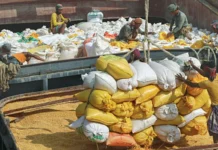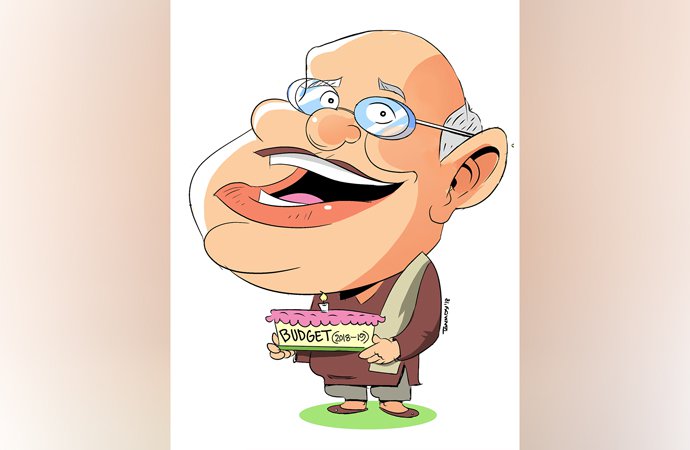
(MENAFN – Arab News) The Saudi-Bangladesh 10th Joint Commission meets on Monday and Tuesday in Riyadh to discuss economic and trade opportunities, said Bangladesh Ambassador Mohammed Shahidul Islam.
“The meeting is aimed at securing tangible benefits for both parties in terms of their economies, trade, investment, education, culture, human resource development, health, agriculture, manpower cooperation and other areas,” Islam said.
He added that the meeting of the commission, after a lapse of four years, would provide further impetus to bilateral relations.
The meeting will be co-chaired by Deputy Minister for Economic Relations Dr. Abdul Kalam Azad and Saudi Deputy Minister for International Affairs in the Ministry of Labor Dr. Ahmed Al-Fehaid. The Bangladesh team will comprise 30 senior government officials.
The ambassador said there are investment opportunities in various sectors in Bangladesh whose economy recorded an annual growth rate of over 6 percent in spite of multiple crises and climate change issues.
The government is determined to further increase growth until 2021 and sustain it thereafter to make Bangladesh a middle-income country, he said.
Efforts are underway to develop strong regional connectivity with roads, railways and waterways with a view to taking advantage of the unique strategic location of the country between south and Southeast Asia and physical proximity to China, with the potential to become the economic hub of the region.
He said Bangladesh has “strong economic fundamentals, resilience and potential” with Goldman Sachs ranking the country as one of the 11 emerging economies after the BRIC countries – Brazil, Russia, India and China. JP Morgan has included it in the list of Frontier Five, Standard and Poor has its investment rating as BB and Moody’s Ba3 for successive years.
Islam said there were investment opportunities in power, information technology, manufacture of ceramic and pharmaceutical products and the tourism sector. He described Bangladesh as the most valued destination for foreign investments.
The envoy indicated that the country has many affordable, hardworking and easily trainable workers.
There are also incentives and facilities offered by Bangladesh to foreign investors including a tax holiday for five to seven years; no import duty on the import of raw materials for export-oriented industries; and full repatriation of invested capital, profits and dividends.
There is also a concessionary duty on imported machinery; 100 percent foreign equity allowed; and an unrestricted exit policy.
He said this offers investors an advantage when relocating industrial plants, especially in the export-oriented industries of Bangladesh.
Construction of bridges on the rivers crisscrossing the country, highways connecting important cities and commuter services in the capital city Dhaka are some of the major areas where foreign investors can consider putting their money, said Islam.
Islam pointed out that bilateral trade between the two countries is increasing steadily, even though the existing balance of trade is tilted heavily in favor of Saudi Arabia.
Bilateral trade between the two countries increased steadily over the last couple of years, said Islam. Bilateral trade between the two countries in the years 2010-11 and 2011-12 was 869.56 million and 922.33 million respectively.
He hoped that bilateral trade will increase substantially between the two countries in the years to come, following a number of promotional activities planned by the Bangladesh Embassy to introduce Bangladeshi products and services in the Kingdom.
The envoy pointed out that the Kingdom was still the most valued destination for the Bangladesh workforce despite various obstacles in the field of human resource cooperation. He added that around 1.5 million Bangladesh nationals are now employed in the Kingdom, which contributes positively to enhanced people-to-people contact.
They have developed an understanding and appreciation of Saudi values, traditions and customs, Islam said.
“Bangladesh has undertaken multifaceted steps and programs to expand the scope for overseas employment opportunities and to promote transparency and ensure qualitative changes to the recruitment process to reduce fraudulent acts and practices,” he said.
Islam further stressed that the aims of this policy are also to minimize migration and others costs of sending the Bangladesh workforce to work in overseas markets.
More than eight million Bangladesh workers, including skilled and semi-skilled, professionals such as doctors, engineers, paramedics, nurses, teachers, bankers, and IT workers are working overseas.
“Bangladesh has a deep-rooted historic relationship with Saudi Arabia characterized by common priorities, shared perspectives and fraternal relations,” he said.
He added that Bangladesh believes in religious harmony and tolerance and plays a vital role in maintaining peace in troubled parts of the world. The country has become the number one contributor to the United Nations peacekeeping force.
Islam spoke of the importance of the Kingdom as the birthplace of Islam and home to Islam’s two holiest cities of Makkah and Madinah. He said that Saudi Arabia is revered by the 150 million people of Bangladesh, which has nearly 90 percent Muslims.
He added that Saudi Arabia has a special place in the hearts of the people of Bangladesh and they will always remember the contributions made by the Custodian of the Two Holy Mosques King Abdullah and his government during “our times of need.”
Islam said there were a number of high-level visits between the two countries in 2013 including the visit of the speaker of the Shoura Council, Dr. Abdullah Al-Asheikh, who had led a 13-member delegation to visit the country in early January.
Islam added that the President of Bangladesh Zillur Rahman had visited the Kingdom in August last year to attend the 4th Extraordinary Session of the Islamic Summit in Makkah at the invitation of Custodian of the Two Holy Mosques King Abdullah. During the visit, he led a 15-member delegation.
Islam added that Prince Alwaleed bin Talal, Chairman of Kingdom Holding Company and Princess Ameerah, with a 16-member delegation, had visited Bangladesh in June 2012 for one day at the invitation of the government.
Prime Minister Sheikh Hasina conferred the Bangladesh Friendship Medal on Prince Alwaleed for his special contribution toward improving relations between the two countries.
In 2012, there were as many as five ministerial visits from Bangladesh to the Kingdom.
“Ministerial level visits in 2012 include the Bangladesh Foreign Minister’s visits to Saudi Arabia in March and June, Expatriates’ Welfare and Overseas Employment Minister’s visits to Saudi Arabia in February and June, and the Education Minister’s visit in December.”
Islam said that bilateral relations have improved after the recent signing of the Avoidance of Double Taxation Agreement. The Reciprocal Promotion and Protection of Investments Agreement has been finalized and is expected to be inked shortly.
Source: Menafn









